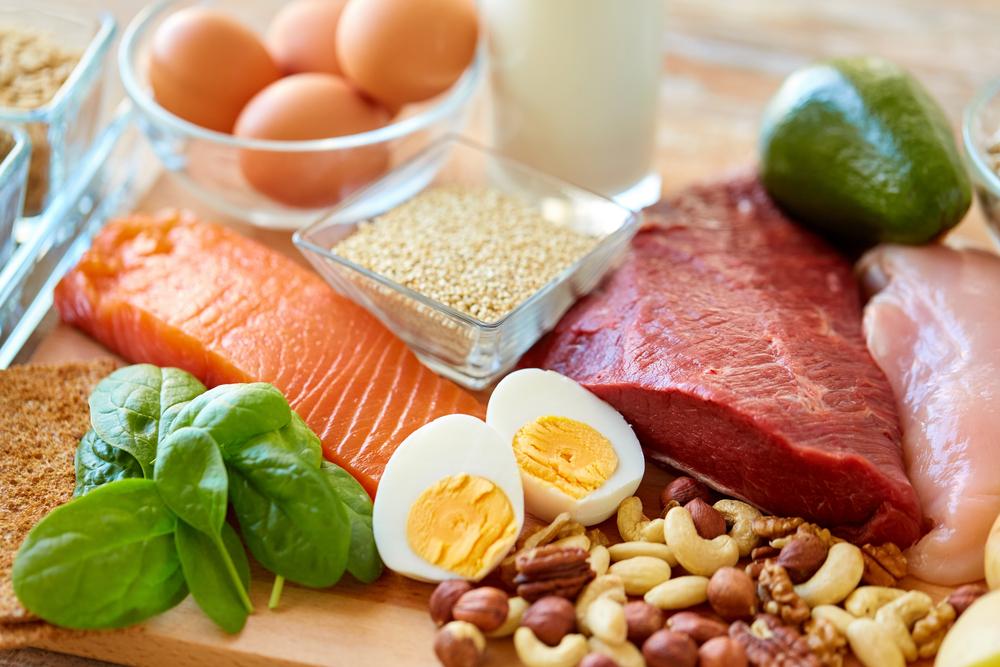
We all know that this is true ,but another report simply adds to the case weight. today we even have a carnivore movement driven by those often in a bad way and generating good results.
Poor judgement and type two diabetes is a poor combination.
I know that the Atkins diet pushes ketosis ,but i am not so sure that it is totally necessary. High protein displacing carbs is. ten percent carbs will not push ketosis but will obviously alow your body to reset and that does mean elimination of internal fat stores.
you do apparently need to eat more protein than you are used to.
High-Protein, High-Fat Diet Helps Type 2 Diabetes Patients Achieve Insulin Independence
A Japanese doctor developed his own high-protein, high-fat diet and lost over 30 pounds in one year, then used it to help wean diabetes patients off insulin.
(Ground Picture/Shutterstock)
By Ellen Wan
3/18/2024Updated:
https://www.theepochtimes.com/health/high-protein-high-fat-diet-helps-type-2-diabetes-patients-achieve-insulin-independence-5602604?
Dr. Mizuno Masato, director of Japan’s Institute of Health and Nutrition Diseases and an internal medicine physician, developed a novel high-protein and high-fat diet. Following it, he lost 30.86 pounds in a year and also used it to wean Type 2 diabetes patients off insulin.
The high-protein and high-fat diet involves consuming 40 percent protein, 50 percent fat, and 10 percent carbohydrates per meal. This differs from the traditional concept of a balanced diet, which typically consists of 20 percent protein, 20 percent fat, and 60 percent carbohydrates.
Dr. Masato mentioned in an article in a health magazine called “Peace of Mind“ that he used to have prediabetes. At 5 feet 3 inches tall and weighing 169 pounds, he had a body mass index (BMI) of 30, considered obese. Additionally, he suffered from nonalcoholic fatty liver disease (NAFLD). His glycated hemoglobin (HbA1c) level, which reflects blood sugar levels, rose to 6.5 percent, which is higher than what is required for a diabetes diagnosis.
“At that time, I often ate fruits and desserts even after a full meal. I tried to limit my calorie intake, but I could not bear the hunger and ended up overeating, resulting in weight gain time after time,” he said.
Concerned about the health risks of continuous weight gain, Dr. Masato collected information from various sources and developed his own high-protein, high-fat diet. After practicing it for a year, besides losing a great amount of weight, his liver function test results returned to normal, and his glycated hemoglobin level dropped to 5.2 percent. Most importantly, he became full of energy, and his life transformed.
All Patients Achieved Insulin IndependenceOver the past 10 years, Dr. Masato has treated many diabetes patients at a diabetes care center in Tokyo. He stated, “I have witnessed the status quo of diabetes not improving despite following the conventional guidelines.” Because his personal success with a high-protein, high-fat diet made him confident, he recommends it to some of his diabetes patients.
In his book “A Method to Lower Blood Sugar Without Depending on Medication,” Dr. Masato mentioned that he treated 84 Type 2 diabetes patients between 2014 and 2018. These patients initially needed to self-administer insulin at home, but after implementing his diet, all achieved insulin independence.
Notably, one of the patients was initially injecting up to 97 units of insulin daily. Another patient with a 25-year history of Type 2 diabetes who was injecting 76 units of insulin daily was able to stop insulin injections and even lose 17.42 pounds after six months.
Reduced Dependence on MedicationsInsulin produced by the body can lower blood sugar to a stable level. However, in Type 2 diabetes patients, cells become less sensitive to insulin, leading to insulin resistance. Consequently, blood sugar cannot enter the cells, resulting in high blood sugar levels.
Dr. Masato believes that while medication and injections are lifesaving measures for high blood sugar, maintaining stable levels requires more than just these interventions.
He explained that if not managed carefully, insulin injection could lead to hypoglycemia. Symptoms of hypoglycemia include intense hunger, cold sweats, pale complexion, loss of consciousness, and seizures.
Furthermore, if medication or injections result in excessively high insulin levels in the body, despite lowering blood sugar, it could increase the risk of more life-threatening diseases, such as diabetic nephropathy and diabetic retinopathy.
Therefore, Dr. Masato recommends maintaining externally injected insulin at the minimum required level while following a diet rich in protein and fat and limiting carbohydrate intake.
Protein and Fat SourcesDr. Masato believes diabetes patients require a higher protein intake than healthy individuals to maintain and repair their bodies. A patient weighing 132.28 pounds would need to consume 3 to 4 ounces of protein daily, about the size of an open palm.
He highly recommends animal proteins, including meat (beef, pork, chicken, or lamb), eggs, and fish. Eggs, in particular, are rich in high-quality protein. While the absorption rate of protein from fish is lower, the advantage is that it provides two beneficial fats, DHA and EPA.
Dr. Masato suggests consuming fats found in animal meat and fish, as well as plant-based sources like olive, coconut, and flaxseed oils. He strongly advises against harmful fats such as margarine, shortening, and rapeseed oil, high in trans fats.
He also emphasized that patients receiving insulin injections or taking insulin-secreting medications should not switch to a high-protein and high-fat diet without consulting a doctor.
No comments:
Post a Comment